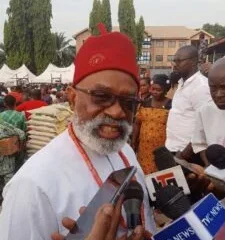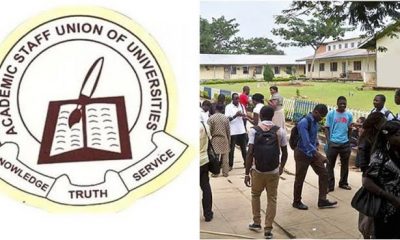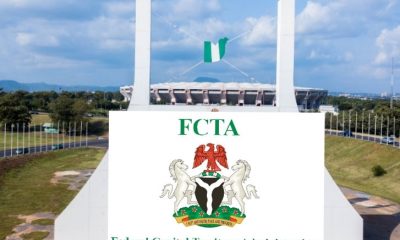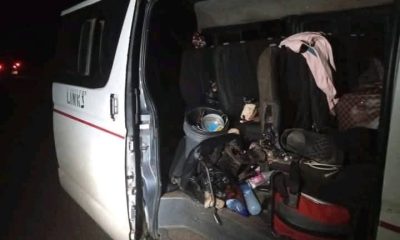Education
ASUU Strike will soon be Truncated — Ngige
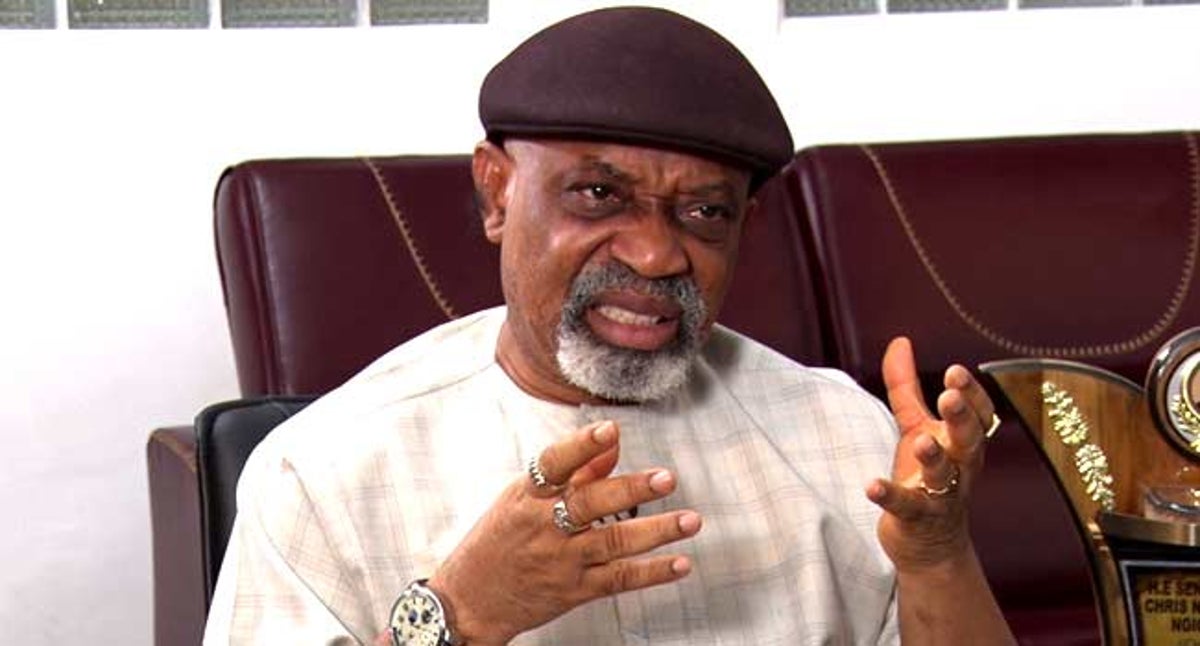
The Federal Government on Wednesday in Abuja expressed the hope that the one-month warning strike embarked upon by ASUU on Feb. 14, would soon be truncated.
ASUU called its members out on the warning strike to compel the Federal Government to address their demands, some of which had been lingering since 2009.
Minister of Labour and Employment, Sen.
Chris Ngige, expressed the hope of truncation of the warning strike when he spoke with newsmen at the end of a conciliation meeting between government and the union.Ngige said the meeting agreed on many issues and a timeline was scheduled for the implementation of the agreements.
According to him, ASUU officials agreed to return to their members with offers made by government and revert to him before the week runs out.
He noted that many of the items in the 2020 Memorandum of Action (MOA), had been dealt with exhaustively, while some were being addressed.
“We have only one or two areas that are new. One of the new areas is the renegotiation of the Conditions of Service, which is called the `2009 Agreement’.
“An agreement was reached in 2009 that their Conditions of Service would be reviewed every five years. It was done in 2014.
“We started one in which the former UNILAG Pro- Chancellor, Wale Babalakin (SAN), was chairing the committee.
“’After Babalakin, Prof. Manzali was in charge and the committee came up with a draft document, proposed by the Federal Ministry of Education and ASUU.
“Today, Manzali’s committee has become defunct because many of the people in the committee are no longer pro-chancellors,’’ the minister explained.
Ngige said that a new team had been constituted to take a second look at that document.
“This is to make sure that some of the allowances are not against the National Salaries, Incomes and Wages Commission (NSIWC) fixed rates for wages and allowances.
“If you propose allowances that do not comply with NSIWC rates, the government will not be able accept it.
“So, it is important that they do the right thing from the beginning so that whatever the committee presents can be approved by the Federal Executive Council,’’ he said.
Ngige also said that the meeting fixed a timeline of six weeks for the new committee set up by the education ministry to round up everything on the Conditions of Service.
He noted that on the issue of University Transparency Accountability Solution (UTAS) for the payment of salaries, the meeting mandated a joint committee to conduct an integrity test on the platform in conjunction with neutral experts.
The joint committee has ASUU, the National Universities Commission, and the National Information Technology Development Agency as members.
“We told them to conclude the test by March 8. If they conclude, we are expected to work on it within six weeks,’’ Ngige said.
ASUU had agitated for the adoption of UTAS to pay varsity lecturers’ salaries in preference to the Integrated Payroll and Personnel Information System insisted upon by the Federal Government.
Ngige said there was no problem with the issue of Earned Academic Allowances, apart from the reconciliation of payments made in tranches to the university system.
“Once we conclude the reconciliation, if the Federal Government is in arrears on any tranche, the finance minister will look for money to pay; even though the Federal Government does not have money.
“Earned allowance is an allowance for excessive workload. Last year, it was paid based on the rule of the thumb theory of 10 per cent of total personnel cost.
“This year, we have told the National Universities Commission to put up a committee and within the next three weeks, come up with a figure that will be sent to the finance minister.
“For me, I think, we are on course, ASUU should go to their members, show them offers made to them by government so that they can call off the strike,’’ Ngige said.
Earlier, the President of ASUU, Prof. Emmanuel Osodeke, said members, students and Nigerian people want to see an action from the government.
“The education sector in Nigeria is in crisis and money is being lost at the primary, secondary and tertiary education levels,’’ he said.
He noted the quantum of money that ought to have been used to fund education in Nigeria was being lost to other countries.
Osodeke, therefore, called for a declaration of emergency in the sector to solve the problem. (NAN)
Education
Educationist Advocates Strong Monitoring Structure for IDP Education
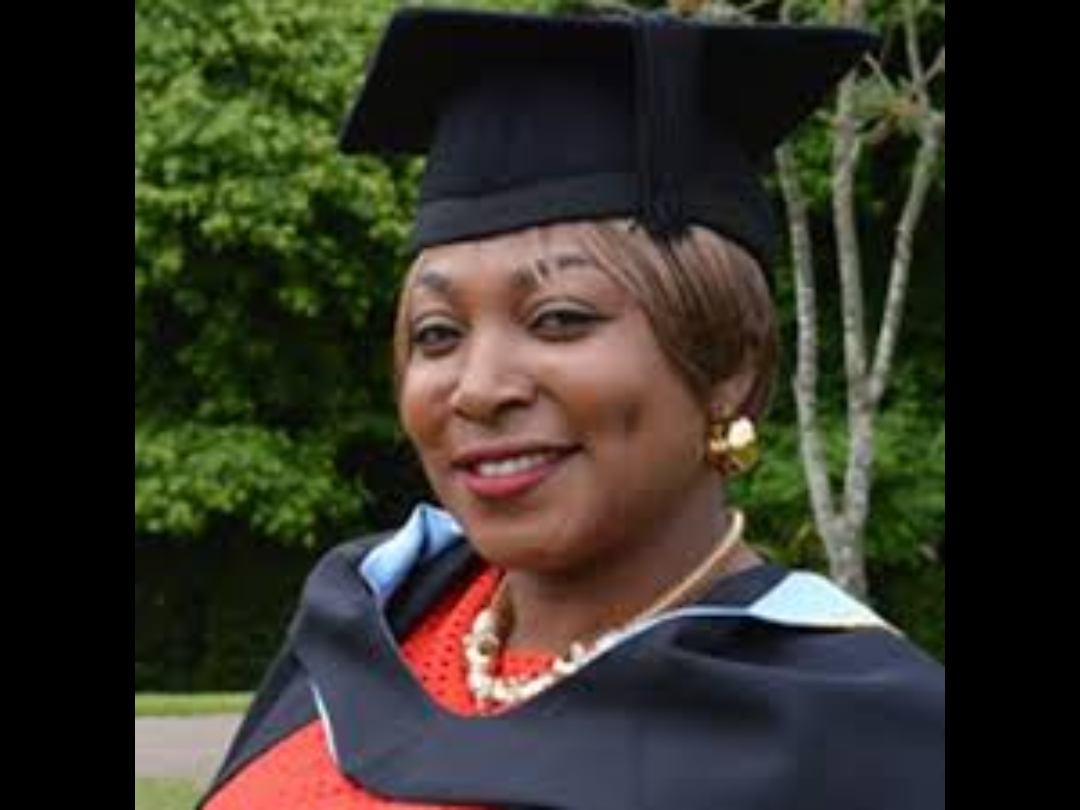
A lecturer at the University of Southampton, UK, Dr Vivienne Rwang has called for the establishment of monitoring structures to strengthen the implementation of Nigeria’s Universal Basic Education (UBE) policy for displaced populations.
Rwang made the call on Tuesday during a virtual seminar themed, “Improving Educational Access and Quality for Displaced and Marginalised Learners in Nigeria: A Policy and Practice Approach”.
It was hosted by the Southampton Education School, University of Southampton, UK.
She said findings from her academic study revealed the severe challenges faced by internally displaced children in accessing quality basic education in camps across North Central and North East Nigeria.
“Education is more than a right; it is a tool for stability, healing, and hope. We owe these children that much,” Rwang stated.
Citing global statistics, she noted that Sub-Saharan Africa accounts for 46 per cent of conflict-induced displacement worldwide, with Nigeria representing a significant portion due to prolonged insurgency and communal violence.
Rwang called for urgent reforms to Nigeria’s UBE framework, including the formal recognition of IDP camps by federal and state governments, dedicated education budgets for displaced children, and curriculum reforms in teacher training to integrate emergency education.
She further advocated for free education for IDP children, including the waiving of Parent-Teacher Association (PTA) fees, and the provision of uniforms and learning materials.
“In spite of Nigeria’s UBE policy mandating free and compulsory basic education, many IDP children remain excluded,” she said.
According to her, many IDP camps lack functional schools, while displaced children who attempt to enrol in neighbouring schools often face rejection, high fees, or non-absorption due to overcrowding or lack of documentation.
She also highlighted the shortage of trained teachers capable of addressing the psychosocial and educational needs of traumatised children, noting that most IDP schools operate without special budgetary allocations.
“Teachers working in and around camps often lack the training, motivation, and resources to meet the needs of displaced learners.
“Without education in emergency training, we risk losing an entire generation, ”Rwang added.
In her keynote address, Prof. Nana Tanko, Co-founder of the African Policy Research Institute, called for urgent action to support the education of children in conflict-affected states.
She stressed that collective efforts are needed to lift them out of their current circumstances.
Deputy Vice Chancellor, University of Jos, Prof. Rahila Gowon alongside other academics from the institution, also emphasised the need for a complete overhaul of Nigeria’s education system to better accommodate marginalised learners.
Also speaking, Simon Katu, Assistant Director of Disaster Risk Reduction at the National Emergency Management Agency (NEMA), advocated for the integration of education in emergencies into national and state disaster management frameworks.
He said this would help institutionalise the Safe School Initiative and ensure more consistent interventions.
Rwang’s research is titled “Quality Basic Education and Provision for Internally Displaced Children in Internally Displaced Persons Camps: A Case Study of IDP Camps in North Central and Northeast Nigeria”.
It was motivated by her volunteer work in IDP camps and findings from her master’s dissertation on public primary education in the Federal Capital Territory (FCT).
Representatives from the Universal Basic Education Commission (UBEC), International Organisation for Migration (IOM), Hope for All Foundation, Lovatt Foundation, and various school administrators also participated in the seminar.
Education
Philanthropist Olusoji Approves Full Scholarship for 100 Kogi COE Students
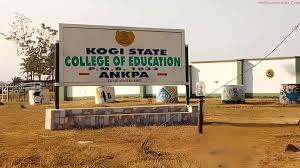
The act of generosity displayed by Asiwaju Prince Olatunji Olusoji, the Bashorun Akinjagunla of Ogidi, has not only put smiles on the faces of 100 students at Kogi State College of Education (Technical), Mopa, but has also earned him recognition as a key partner and friend of the institution.
He offered full sponsorship to 100 students of the institution, covering tuition and accommodation for the three-year academic programme.
The gesture was met with gratitude and appreciation from the Provost of the College, Dr. M.K Ibrahim, and the State’s Commissioner for Education, Hon. Wemi Jones.The College Provost particularly appealed for further partnerships, including an educational endowment and support for the construction of a College Clinic, which Prince Olusoji graciously agreed to consider.
For his part, Commissioner Jones commended the philanthropist for his dedication to educational advancement and community development, emphasising the government’s commitment to the growth of Kogi State College of Education (Technical), Mopa.
Prince Olusoji’s immediate approval and release of funds for the scholarship, as well as his pledge to assist with the clinic project, demonstrated his strong belief in the power of education and the importance of giving back to the society.
As a token of appreciation, the Provost and the Education Commissioner decorated Prince Olusoji as a ‘Friend and Partner of the College’, solidifying his status as a valuable ally in the pursuit of academic excellence and holistic development.The generous gesture of Asiwaju Prince Olatunji Olusoji serves as a shining example of how individuals can make a significant impact on the lives of others through acts of kindness and philanthropy. His commitment to supporting education and community welfare is a beacon of hope for the future generations of Kogi State and beyond.
Education
NYSC DG Tasks Corps Members on Patriotism, Selfless Service Others

The Director General of National Youth Service Corps (NYSC), Brigadier General Olakunle Nafiu has advised Corps members to allow the core values of the scheme be their guiding principles during and after their service year.
He said patriotism, integrity, efficiency, transparency, consistency, loyalty, discipline, diligence, selfless service among others are necessary requirements for a successful service year.
General Nafiu disclosed this while addressing the 2025 Batch ‘A’ Stream Two Corps members at the Cross River State Orientation Camp in Obubra and Ebonyi State Orientation Camp at MacGregor College,
Afikpo, a statement by the acting Director Information and Public Relations, NYSC, Caroline Embu, said on Sunday.
He said every Corps member must adhere strictly to the scheme’s bye-laws, constitution of the country and also respect constituted authorities.
“Be at your best at all times. Be diligent and punctual at work, don’t be lazy and serve as our good ambassadors,” the DG said.
The NYSC Cross River State Coordinator, Joke Oyenuga in her camp situation report informed General Nafiu that 1,455 Corps Members consisting of 675 males and 780 females took the Oath of Allegiance, which was administered by the High Court Judge of Obubra, Hon. Justice EA Ubua during the swearing-in ceremony.
She added that “the morale among the staff and Corps Members is very high and they were all committed to getting the best results.”
Similarly, the NYSC Ebonyi State Coordinator, Foluke Oladehinde said 1,525 Corps members comprising 765 males and 760 females were registered while the Oath of Allegiance was administered by Hon. Justice Nicholas Nwode on behalf of the Chief Judge of the State.

